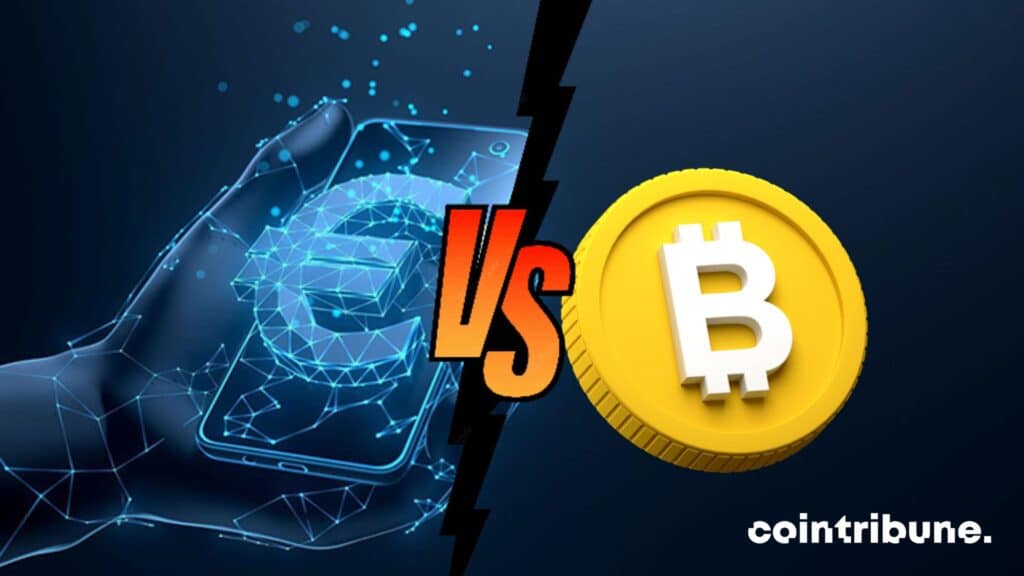Bitcoin vs Digital Euro: Two Opposing Visions of the Future of Money
The European Central Bank (ECB) is speeding up its work on a digital euro, with a budget of €1.3 billion. Meanwhile, Bitcoin continues to attract new enthusiasts every day, drawn to the cryptocurrency’s radical decentralization. But the digital euro and Bitcoin embody two opposing conceptions of what money is.

The Digital Euro, State Currency Under Control
With the digital euro, the ECB aims to adapt money to digital payments, while retaining tight control. Use would be limited, with a cap on transactions. And data could be harnessed for monetary policy purposes.
The digital euro thus remains a state currency, where trust is based on the issuing institution. Citizens have no say over the rules or evolution of this currency, which are entirely decided by the ECB.
Bitcoin, a Radical Rethink of Money
By contrast, Bitcoin represents a complete paradigm shift from traditional currencies. No central authority controls the issuance or the rules of Bitcoin.
Trust is based on a decentralized open-source protocol, maintained by an international community. Every user can participate in Bitcoin’s governance by freely choosing the rules that govern their money.
Bitcoin is even designed to resist any attempt at control by a state or central bank. Its value is based on a consensus among participants, not on a centralized issuing institution.
Two Visions of the Monetary Future
Through the digital euro and Bitcoin, two radically opposing visions of the monetary future are clashing.
On one side, central banks like the ECB seek to maintain their state control over money, adapting it to the digital era.
On the other hand, decentralized currencies like Bitcoin are challenging this model to give control to the users themselves.
It’s still unclear which approach will prevail in the long run. But the contrast between these two possible futures could not be more stark.
Either our currencies will remain centrally decided by state institutions. Or they will become self-regulated decentralized protocols, where trust emanates from the users themselves.
Through the digital euro and Bitcoin, two radically opposing visions of the monetary future are clashing. The ECB is defending the model of state currency against a profound challenge posed by decentralized cryptocurrencies such as Bitcoin. Whatever the outcome of this debate, there is no doubt that Bitcoin has played a decisive role in challenging the very nature of money in the digital age.
Maximize your Cointribune experience with our "Read to Earn" program! For every article you read, earn points and access exclusive rewards. Sign up now and start earning benefits.
The world is evolving and adaptation is the best weapon to survive in this undulating universe. Originally a crypto community manager, I am interested in anything that is directly or indirectly related to blockchain and its derivatives. To share my experience and promote a field that I am passionate about, nothing is better than writing informative and relaxed articles.
The views, thoughts, and opinions expressed in this article belong solely to the author, and should not be taken as investment advice. Do your own research before taking any investment decisions.